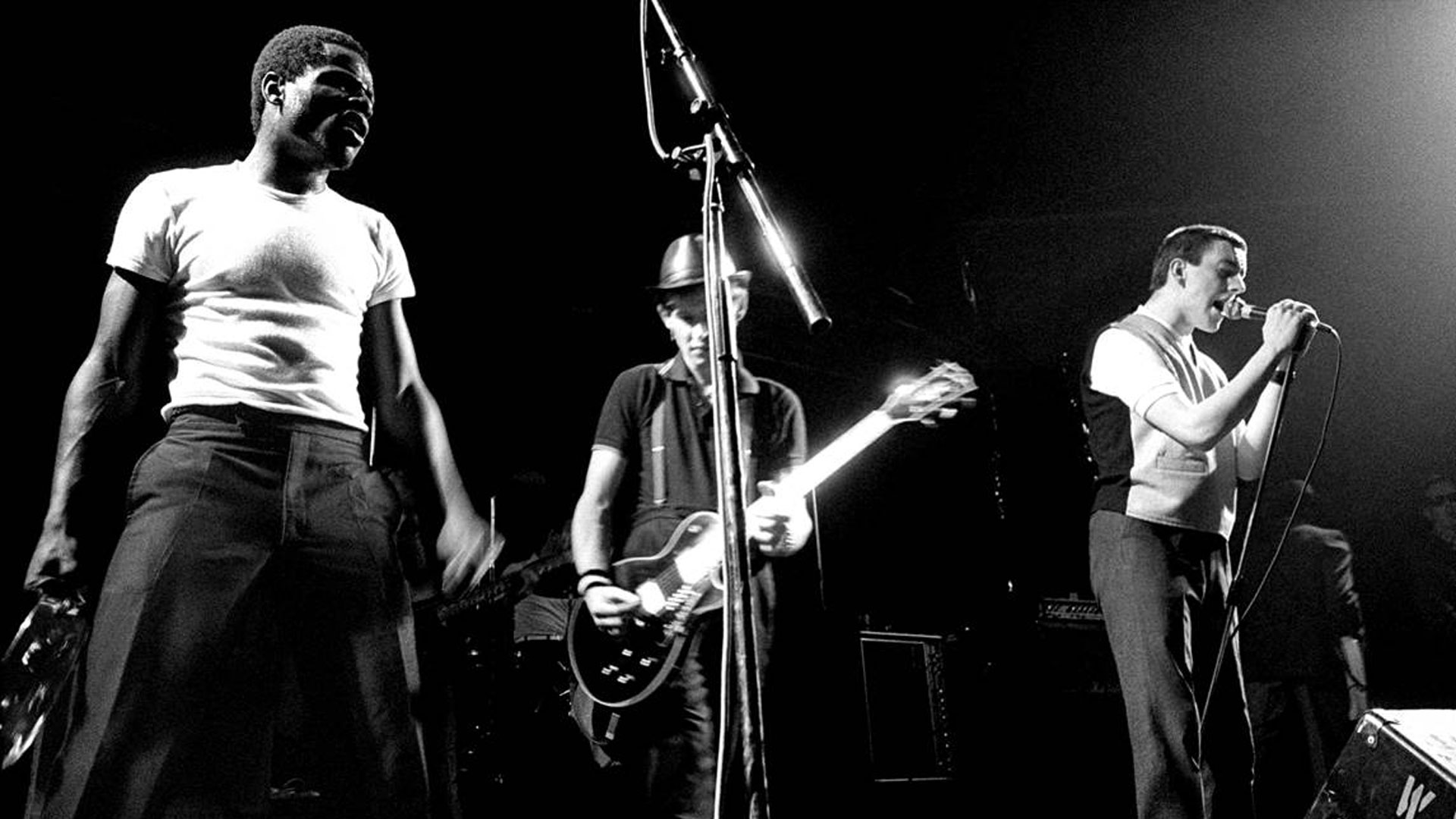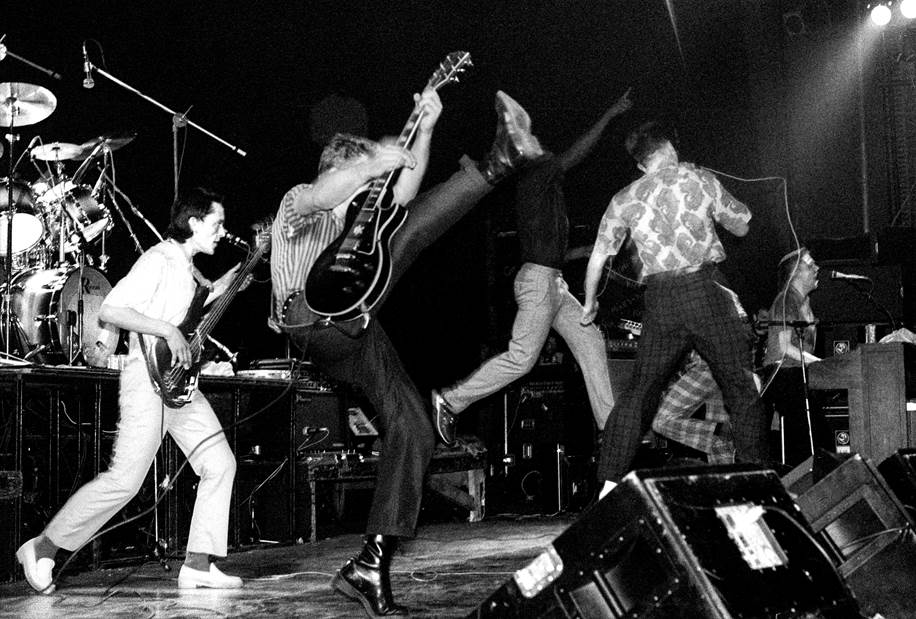Within a year of the Conservatives’ election victory in May 1979, unemployment had doubled, reaching two million for the first time in 40 years. As Britain braced itself against the first effects of ‘The Thatcher Experiment’, chancellor of the exchequer Geoffrey Howe announced major cuts in public spending. Contemplating another winter of discontent, Margaret Thatcher told the nation, “I prefer to believe that certain lessons have been learnt from experience, that we are coming, slowly, painfully, to an autumn of understanding. And I hope that it will be followed by a winter of common sense. If it is not, we shall not be diverted from our course.”
The Specials disagreed. Having recently celebrated their first number one record – Too Much Too Young – and as one of a handful of bands alongside The Selecter, Madness, The Beat and The Bodysnatchers, they spearheaded the 2 Tone movement rallying against the incumbent government. 2 Tone was black and white; a multi-racial force of British and Caribbean island musicians singing about social issues, racism, class and gender struggles. Their music spoke of injustices in society and took fight against right-wing extremism.
On 30 October 1980, The Specials headlined a fortnight of charity gigs to raise money for homeless people under the banner ‘Blanket Coverage’. Staged at the Hope & Anchor in Islington, North London, guitarist Lynval Golding says, “It was a great gig. Everyone was so enthusiastic. We’d not performed better.”
The Specials introduced themselves with an impromptu round of It’s all a load of bollocks, variously spoken, slurred or shouted in overlapping ad-hoc timings by anyone in close proximity to a microphone. The comic revelry crescendoed with a keyboard riff and an energetic rendition of Pearls’ Café. Adding vocals to the musical melee, special guest Rhoda Dakar (The Bodysnatchers) then collapsed in hysterics as Jerry Dammers pounded at the keyboards with his fists, emitting atonal chords, discordant notes and swirling avant-garde figures over I Can’t Stand It. Impenetrable and deadpan behind a pair of large dark sunglasses and wearing a green paisley shirt, singer Terry Hall insouciantly chewed gum throughout until trapping his foot in a beer crate at the lip of the stage.
- Terry Hall: ‘The Specials have always been about protest
- ‘Injustice is timeless’: The Specials talk enduring politics in music
A year earlier, Coventry’s Specials had bonded with London’s Madness over the selection of ska on the pub jukebox in the Hope & Anchor. But when Jerry Dammers shared his plans to start a record label, Madness’s lead singer was doubtful. “He said it was going to be an English Motown,” says Suggs. “Then he told us he didn’t have anywhere to stay so he came back to my mum’s flat!
“The Specials were like us but turbocharged,” Suggs continues, “they were playing a tuba and we were playing a trumpet: theirs was more deeply resonating, but you could still hear ours from a distance!”










